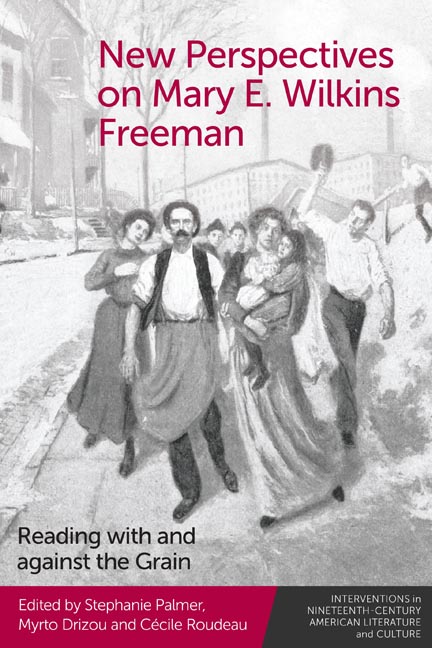Book contents
- Frontmatter
- Contents
- List of Figures
- Acknowledgments
- Contributors
- Reading Freeman Again, Anew
- Part I Kinship Outside of Normative Structures
- Part II Violent, Criminal, and Infanticidal: Freeman’s Odd Women
- Part III Women’s Work: Capital, Business, Labor
- Part IV Periodization Reconsidered
- Afterword: Why Mary E. Wilkins Freeman? Why Now? Where Next?
- Index
6 - Redefining the New England Nun: A Revisionist Reading in the Context of Pembroke and Irish American Fiction
Published online by Cambridge University Press: 20 October 2023
- Frontmatter
- Contents
- List of Figures
- Acknowledgments
- Contributors
- Reading Freeman Again, Anew
- Part I Kinship Outside of Normative Structures
- Part II Violent, Criminal, and Infanticidal: Freeman’s Odd Women
- Part III Women’s Work: Capital, Business, Labor
- Part IV Periodization Reconsidered
- Afterword: Why Mary E. Wilkins Freeman? Why Now? Where Next?
- Index
Summary
The title story of Mary E. Wilkins Freeman’s collection A New England Nun (1891) has generated a vigorous debate. The scholars argue whether Louisa Ellis’s refusal to marry signifies a preference for autonomy or a gesture of passivity driven by fear of sexuality and change. For many critics, the religious term nun is a metaphor for avoiding matrimony. Claiming that there are “two New England nuns” in Freeman’s early short fiction—Louisa Ellis from “A New England Nun” and Louisa Britton from “Louisa”—Martha J. Cutter defines the nun as a woman “who decide[s] not to marry” (213). Janice Daniel, too, pairs the two Louisas as unconventional young women who choose singleness over the traditional “place” of marriage (70). When critics attempt to de-stigmatize spinsterhood, they use the term “nun” positively, associating it with women’s autonomy. On the other hand, the term is used negatively when Louisa Ellis’ self-isolation and sterility are condemned. In either case, the “nun” is equated with an unmarried woman while the meaning and connotations of the term—other than sexual abstinence—are either disregarded or used loosely.
As an example, Ben Couch acknowledges that Louisa “gives up society in order to serve her own higher purpose, her autonomy” similarly to a nun who “gives up sexuality and society” to serve God (188). Despite this awareness, though, Couch concludes that Louisa does not give up her sexuality; on the contrary, sexual pleasure “without the help of a man” is her higher purpose (197). The nun’s vocation to serve God is replaced by her alleged pursuit of autoerotic desires. A similar mismatch between the definition and its application occurs in Susan K. Harris’s analysis. Drawing on William Wordsworth’s sonnet “Nuns fret not at their convent’s narrow room” (1807), Harris defines nuns as eager seekers of “voluntary imprisonment,” a site for production of “spiritual enlightenment” (“Mary E. Wilkins Freeman” 32).
- Type
- Chapter
- Information
- New Perspectives on Mary E. Wilkins FreemanReading with and against the Grain, pp. 112 - 128Publisher: Edinburgh University PressPrint publication year: 2023



